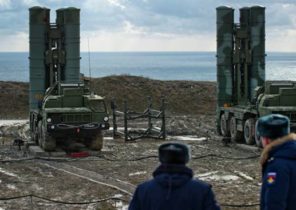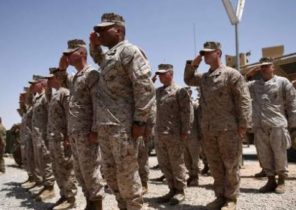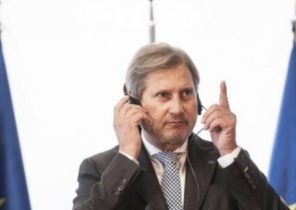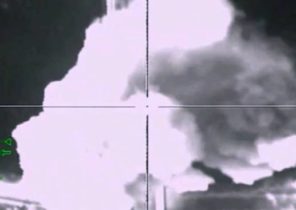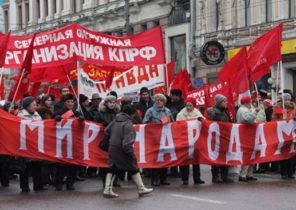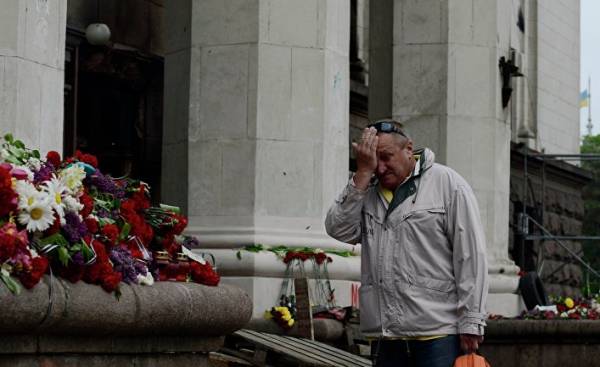
Recently celebrated the second anniversary of the tragic events in Odessa on 2 may 2014. Three years ago, Ukrainian neo-Nazis with impunity murdered at least 48 people (figures vary depending on source), six were killed on the street, and not less than 42 — during a fire in the House of trade unions. That’s not counting the 250 wounded.
And three years later, despite the presence of YouTube videos with the faces of the murderers, all of them are still at large. One does not even have custody. Behind bars Kiev junta sent only to those who managed to survive the massacre. Yes, all is well: the victims of this anti-Russian pogrom for three years sitting in prison without trial.
The other day in London and the Hague, there were demonstrations in memory of the victims urging them to conduct a real investigation and to remove the surrounding mayhem information blockade. In Ukraine people are not even able to gather.
In Odessa failed to commemorate the victims: the police dispersed the demonstrators under the pretext of information about the bomb threat and did not allow them to approach the House of trade unions. First, the Ukrainian government killed those people and now trying to erase the memory of this in his constant desire to rewrite the history of the country.
Everything was done to put a spoke in the wheels of the investigation that for three years, can not give the results: violations of procedures, the direct and indirect political pressure, the disappearance of evidence, delay the hearings indefinitely, a complete restructuring of the investigative team in 2015. Even in charge of the investigation, the head of the Odessa police Dmitry Golovin acknowledged that most of evidence simply disappeared.
Despite sounded in July 2016 calls for the UN to urgently conduct a thorough investigation, nothing budged. The surviving people sitting in jail for three years, extend without end and without hindrance term. The last decision was taken on 13 February 2017. They appeared behind a lattice only because of the clashes between anti-fascists and neo-Nazis. None of the suspects in the murder burned the House of trade unions of people and was not detained. They all still walk free.
Former Deputy of Odessa Alexey Albu was present at the scene may 2, 2014 and perfectly described the situation on the facts of inactivity of the Ukrainian justice:
“The bottom line is that the court will never move forward until staged the carnage people will remain in power. Until we change the government, or they will not destroy each other, nothing will change. Army DNR and LC obviously can’t get to Odessa, although we hope that it will happen someday. If we want a trial on this case, you need a change of government”.
In Donetsk also honored the memory of victims in Odessa, and the speaker of the Parliament DND Denis Pushilin stressed in his speech the importance of teaching history to children without crossing out and rewriting events to prevent the recurrence of such tragedies in the future.
Meanwhile, the Russian justice system is slowly but surely moving forward. In addition to the formation of a Commission of inquiry on war crimes in the Donbass it has already initiated proceedings against several officials and commanders of the Ukrainian army for crimes against the population of Donbass.
In addition, recently in the first series in the information space behind the other, somewhat forgotten during the last years of the war. Chechen. Involved in the investigation of crimes against Russian soldiers during the first war in Chechnya Investigative Committee has long been accused Arseniy Yatsenyuk of the war crimes the Ukrainian nationalist groups that fought alongside Chechen Islamists from 1994 to 1995.
“According to the investigation, Arseniy Yatsenyuk participated in at least two armed clashes that took place on 31 December 1994 on the area Minute in Grozny in February 1995 in the area of city hospital No. 9 in Grozny,” — said the head of the Committee Alexander Bastrykin in an interview to “Rossiyskaya Gazeta”.
According to the Committee, Yatsenyuk fought in Chechnya in the composition of the battalions “Argo” and “Viking”, which was led by Oleksandr Muzychko, member of the Ukrainian neo-Nazi movement “Right sector” (an organization banned in Russia — approx.ed.).He tortured and killed Russian soldiers in Grozny on 7 January 1995 and then returned to Ukraine via Georgia.
After the release of an international arrest warrant on 21 February 2017, a Russian court approved him for failure to appear at the end of March. This decision becomes a prelude to supply Russia’s statement to the Interpol with the requirement to make Yatsenyuk in the list of wanted persons.
The Ministry of foreign Affairs of Ukraine considered the confidential text of the letter with the decision, which was handed over to the Ukrainian authorities on the extradition of Yatsenyuk. The authorities, of course, categorically against it.
The confidentiality of the case makes it impossible to obtain access to documents, which, in the opinion of the Ukrainian authorities, could potentially harm the national interests and territorial integrity of Ukraine. Of course, because of the fact that the Prime Minister took the tortured people and executed war criminal, is not the best way affect the already tarnished image of Ukraine after the Maidan.
Meanwhile, the Russian Prosecutor General’s office is putting pressure on Interpol, so that the organization has made Arseniy Yatsenyuk on the list of international wanted list. While Interpol, apparently, trying to stall for time. I must say that former Ukrainian Prime Minister was the toast of the United States during the Maidan. And it explains a lot…
In such circumstances, the recent arrest on the Polish-Ukrainian border, the Austrian who had fought on the side of the Ukrainian army in the Donbas (he was charged with war crimes: killing civilians and/or surrendered soldiers) looks amazing.
It is worth Recalling that Estonian, Spanish and British law enforcement authorities arrested several of its citizens who volunteered in the militia of Donbass. Some were released due to the absence of any evidence that they committed anything wrong, whereas others, for example, Ben Stimson (Stimson Ben), sit behind bars.
At the same time, fought on the Ukrainian side (often in the ranks of the neo-Nazi battalions) volunteers who brag they committed war crimes, as Briton Chris Garrett (Chris Garrett) and Frenchman Thibaut Duper (Thibault Dupire), is still at large and have not attracted the attention of law enforcement agencies of their countries.
Whether the Austrian court more objective than international justice, despite the fact that European courts are silent and cover the foreign mercenaries who committed war crimes in the Donbass on the side of the Ukrainian army?
Several centuries ago, Jean de La Fontaine wrote the famous phrase about the bias of the court. To the current environment it could be adapted in the following way: “International courts you whiten or blacken, depending on, are you in the interests of the United States or against”.
